Find Help
More Items From Ergsy search
-

What is cervical screening (smear test)?
Relevance: 100%
-

Cervical screening (smear test) – what’s it all about?
Relevance: 98%
-
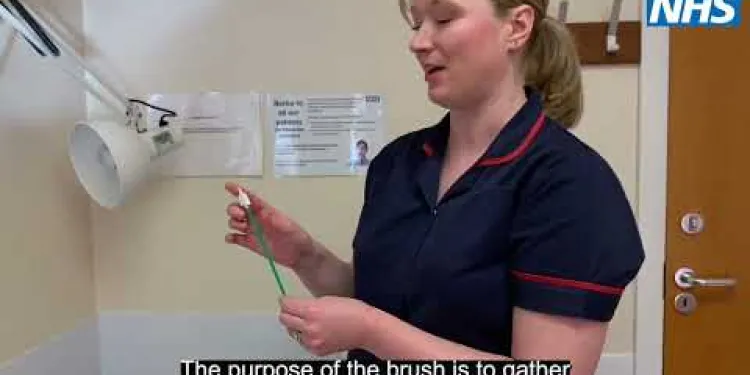
Booked in for your smear test (cervical screening) and not sure what to expect?
Relevance: 93%
-
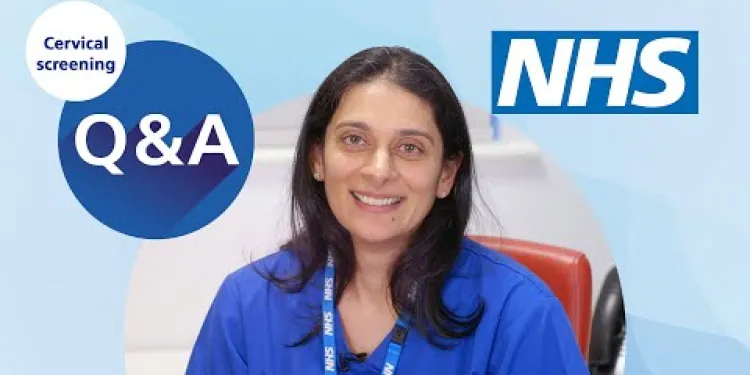
Cervical screening: Q&A | NHS
Relevance: 74%
-

When should cervical cancer screening begin?
Relevance: 73%
-
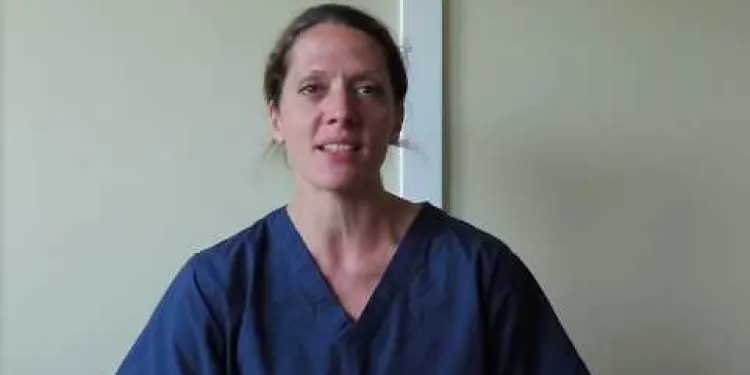
The NHS is #StillHereToHelp with cervical screening
Relevance: 69%
-

Cervical screening: what to expect | NHS
Relevance: 69%
-
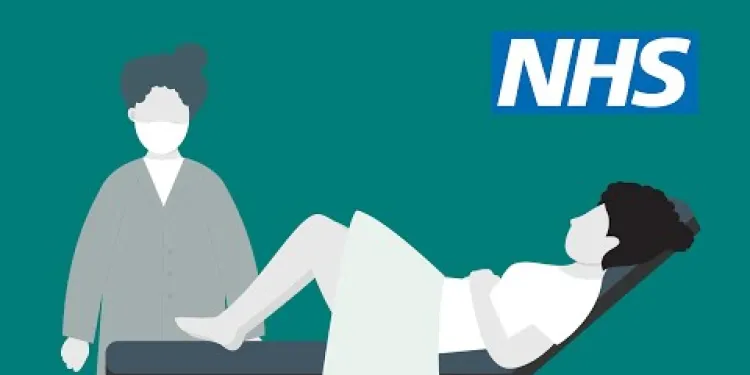
Cervical screening: how it's done | NHS
Relevance: 68%
-

What is a Pap smear?
Relevance: 67%
-

NHSGGC - Cervical Cancer Screening - English
Relevance: 65%
-

Cervical screening for transgender men | NHS
Relevance: 65%
-

Don’t ignore your cervical screening invite | NHS
Relevance: 65%
-

Cervical screening: what to expect | NHS
Relevance: 64%
-

Cervical screening for women who have experienced sexual assault | NHS
Relevance: 58%
-

What kinds of cancer screening are available?
Relevance: 53%
-

Is HPV testing available?
Relevance: 51%
-

What is the link between HPV and cervical cancer?
Relevance: 51%
-

Accessing cervical screening with the right support for people with a learning disability
Relevance: 50%
-

Health Screenings You Should Know About
Relevance: 48%
-

What is cancer screening?
Relevance: 47%
-
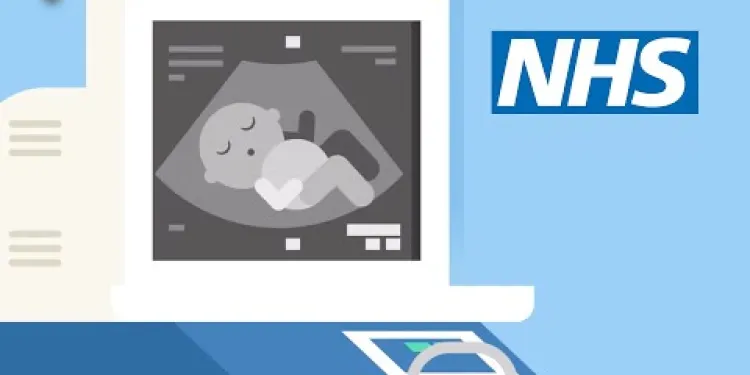
Screening tests for you and your baby | NHS
Relevance: 37%
-

Can the test be performed during my menstrual period?
Relevance: 33%
-

HPV - My Story | NHS
Relevance: 33%
-

How to do the FIT bowel cancer screening test | Cancer Research UK
Relevance: 33%
-

Can HPV lead to cancer?
Relevance: 33%
-

What steps should I take if a screening test shows abnormal results?
Relevance: 31%
-

Are there symptoms of an HPV infection?
Relevance: 31%
-

How can HPV be prevented?
Relevance: 29%
-

Is screening painful or risky for my child?
Relevance: 29%
-

Can HPV be treated?
Relevance: 28%
-

Is genetic screening available for cancer risk?
Relevance: 28%
-

How is blood screened to prevent disease transmission?
Relevance: 27%
-

What happens if my child's screening results are positive?
Relevance: 27%
-

What are the recommendations for colorectal cancer screening?
Relevance: 27%
-

Diabetes Eye Screening
Relevance: 26%
-

What does screening for type 1 diabetes involve?
Relevance: 26%
-

Bowel cancer screening: Alan Titchmarsh and Tommy Walsh | NHS
Relevance: 26%
-

Should I screen my child for type 1 diabetes?
Relevance: 26%
-
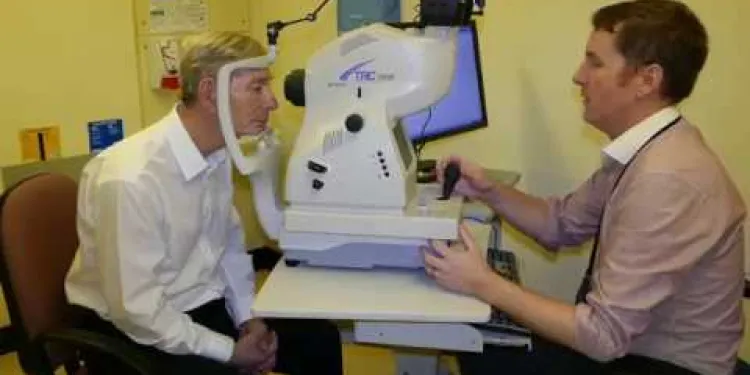
Derbyshire Diabetic Eye Screening - Your Screening Appointment
Relevance: 26%
-

What other viruses are tested for in blood donations?
Relevance: 26%
Booked in for your smear test (cervical screening) and not sure what to expect?
What is Cervical Screening?
Cervical screening, commonly known as a smear test, is a crucial health procedure offered to women and people with a cervix in the United Kingdom. It is aimed at preventing cervical cancer by detecting precancerous cells in the cervix. The NHS invites individuals aged 25 to 64 for screening every three to five years, depending on age.Preparing for the Appointment
When you receive your cervical screening invitation, it's important to book an appointment with your GP or sexual health clinic. There’s no special preparation needed for the test, but scheduling it for mid-cycle when you're not on your period may provide more accurate results. Wearing comfortable clothing that is easy to remove is also advisable, as you will need to undress from the waist down for the test.During the Smear Test
The procedure is straightforward and typically only lasts a few minutes. You will be asked to lie on your back with your knees bent and legs apart. The nurse or doctor will gently insert a speculum into your vagina to hold it open. Using a small, soft brush, they will collect a sample of cells from your cervix. While the process might cause some mild discomfort or pressure, it shouldn't be painful.After the Test
Once the sample is collected, it will be sent to a laboratory for analysis. You may experience light spotting or cramping afterwards, which is completely normal. Test results are usually sent by post within a few weeks. If abnormalities are detected, you may be asked to come back for further tests. If the results are normal, you won't need another smear test for several years unless advised otherwise.Importance of Regular Screening
Regular cervical screening is vital as it helps in early detection and prevention of cervical cancer. Even if you feel healthy and have had the HPV vaccine, attending your smear test appointments is essential. Many pre-cancerous cell changes do not cause symptoms and can only be detected through screening. By knowing what to expect, you can help ensure that your cervical screening experience is as comfortable and stress-free as possible.Booked in for your smear test (cervical screening) and not sure what to expect?
What is Cervical Screening?
Cervical screening, also called a smear test, is a health check for women and people with a cervix in the UK. It helps stop cervical cancer by finding problem cells early. The NHS asks people aged 25 to 64 to do the test every three to five years.Preparing for the Appointment
When you get your letter for cervical screening, make sure to book a time with your doctor or health clinic. You do not need to do anything special before the test, but try to go when you're not on your period. Wearing comfy clothes that you can easily take off is a good idea because you will need to undress from the waist down.During the Smear Test
The test is easy and quick, usually just a few minutes. You will lie on your back with your knees up and legs apart. A nurse or doctor will gently use a tool called a speculum to open your vagina. They will use a small brush to collect some cells from your cervix. You might feel a bit of discomfort, but it should not hurt.After the Test
After collecting the sample, it goes to a lab to be checked. You might have a bit of bleeding or cramping, which is normal. You will get your results by post in a few weeks. If there is a problem, you might need to go back for more tests. If everything is fine, you won't need another test for a few years unless told otherwise.Importance of Regular Screening
Regular cervical screening is very important because it helps find and stop cervical cancer early. Even if you feel well and have had the HPV vaccine, it is important to go to your smear test. Many changes in cells do not cause symptoms and can only be found with the test. Knowing what to expect can help make your cervical screening as comfortable as possible.Frequently Asked Questions
What is a cervical screening (smear test)?
A cervical screening (also known as a smear test) is a medical test that checks the health of your cervix. The cervix is the lower part of the womb. The test primarily aims to detect any abnormal cells that could potentially develop into cervical cancer.
Who needs to get a cervical screening?
In the UK, women and people with a cervix aged 25 to 64 are invited for cervical screening. The frequency of the tests is every 3 years for those aged 25-49 and every 5 years for those aged 50-64.
How do I book a smear test?
You can book a smear test through your GP surgery or at some sexual health clinics in the UK.
How should I prepare for my smear test?
If possible, try to avoid scheduling your test during your period, as it can make the sample harder to interpret. No other specific preparation is generally needed.
What happens during a cervical screening?
During the test, a nurse or doctor will ask you to lie on an examination table. They will gently insert a speculum into your vagina to open it and then use a small brush to take a sample of cells from your cervix.
How long does the smear test take?
The test itself only takes a few minutes, although the entire appointment, including getting undressed and dressed again, might take around 10 to 15 minutes.
Does the smear test hurt?
Most people find the test mildly uncomfortable but not painful. Some may feel a small amount of discomfort when the speculum is inserted and the cell sample is taken.
What happens after the smear test?
After the test, you can usually return to your normal activities. You might experience some light spotting or cramping for a day or so.
When will I get my results?
Results are usually sent by letter within two weeks. If your test is normal, you will be invited back for another screening in 3 or 5 years, depending on your age.
What if my results are abnormal?
If your results are abnormal, you may need further tests to examine the abnormal cells and determine if treatment is necessary. Abnormal results do not necessarily mean you have cancer.
Is it normal to feel anxious about the test?
Yes, it is normal to feel anxious or embarrassed about the test. It's important to communicate any concerns you have with the nurse or doctor performing the screening.
Can I bring someone with me to the appointment?
Yes, you can bring someone with you for support. However, due to current pandemic restrictions, you may want to check with your GP surgery or clinic for their specific visitor policies.
Will I have to take time off work for the test?
The test takes about 10-15 minutes, so you may be able to fit it into a lunch break. However, allow some extra time in case of delays.
Is the test confidential?
Yes, your test and its results are confidential. They will be shared only with you and relevant healthcare professionals.
Why is cervical screening important?
Cervical screening is crucial because it can detect abnormal cells that may develop into cancer over time. Early detection means that changes can be monitored or treated to prevent cervical cancer.
What is a cervical screening (smear test)?
A cervical screening test checks for changes in your cervix. The cervix is at the top of your vagina. Doctors do this test to keep you healthy. It helps find early signs of problems.
Here’s how the test works:
- A doctor or nurse will look at your cervix.
- They use a small brush to take some cells from your cervix.
- You might feel a little uncomfortable, but it doesn't take long.
Why is this test important?
- The test helps to find changes in your cervix before they become serious.
- If caught early, these changes can be treated to stop you from getting very sick.
Helpful tools:
- Ask someone you trust to go with you to the test.
- Use relaxation techniques, like deep breathing, to stay calm.
- Talk to your doctor if you have questions or feel worried.
A cervical screening test is a check-up for your cervix. The cervix is a part at the bottom of the womb. The test looks for any unusual cells that might turn into cancer later.
Who should have a cervical screening?
A cervical screening is a test to check for changes in the cells of the cervix, which is part of the body inside where babies can grow. It helps to keep you healthy.
Women and people with a cervix need this test. You usually start getting it from the age of 25. Your doctor or nurse will let you know when it's time for you to have one.
If you find reading hard, you can ask someone to read this with you. You can also use tools that read the text out loud. This can help you understand better.
In the UK, women and anyone with a cervix who are between 25 and 64 years old should go for a cervical screening test.
If you are 25 to 49 years old, you should have this test every 3 years. If you are 50 to 64 years old, you should have the test every 5 years.
For help with reading, you can use tools like a reading ruler or read out loud to yourself. Asking someone to read with you can also be helpful.
How can I make an appointment for a smear test?
Getting a smear test is important for your health. It checks that the cells in your cervix are healthy. Here is how to book one:
1. Call Your Doctor: You can call your doctor’s office to make an appointment. The doctor or nurse will help you set it up.
2. Use an Online Service: Some places let you book your test online. Check if your doctor or clinic has a website where you can do this.
3. Visit the Clinic: You can also go to the clinic in person. The staff there can help you book an appointment.
If you need help with reading or understanding, you can ask someone you trust to help you.
You can make an appointment for a smear test at your doctor's office or at some sexual health clinics in the UK.
How can I get ready for my smear test?
A smear test is quick. It helps check if you are healthy.
Here are some tips to help you get ready:
- Wear a skirt or dress. It can make you feel more comfy.
- You can bring a friend or family member. They can help you feel better.
- Try to relax and take deep breaths.
If you feel worried, talk to the nurse or doctor. They are there to help you.
Try not to plan your test when you have your period. It can make the results harder to understand. You don’t need to do anything else to get ready for the test.
What happens during a cervical screening?
A cervical screening is a check-up for your cervix. The cervix is the opening to your womb, inside your body.
During the screening, a nurse or doctor will help you lie down. You will need to take off your underwear.
The nurse or doctor will use a special tool called a speculum. It helps them see your cervix better.
They will gently put the speculum inside your vagina. This might feel a bit strange, but it should not hurt.
They will use a small brush to take some cells from your cervix. This is very quick.
Taking the cells might feel a bit uncomfortable, but it only takes a few seconds.
After that, you can get dressed.
If you feel nervous, you can bring a friend. You can also listen to music to help you relax.
At the doctor's office, you will lie down on a special table. A nurse or doctor will put a tool called a speculum inside your vagina. This helps them see better. Then, with a little brush, they will take a small sample of cells from your cervix.
How long does a smear test take?
A smear test does not take long. It usually takes about 5 minutes.
If you are worried, you can bring a friend with you.
Try taking deep breaths to stay calm. You can also listen to music to relax.
The test is very quick. It only takes a few minutes. But the whole visit, with changing clothes, might take 10 to 15 minutes.
Does the smear test hurt?
The smear test checks if your cervix is healthy. Some people feel a little uncomfortable for a few minutes. Try to relax and take deep breaths. If it hurts, tell the nurse.
You can bring your favorite music or a friend to help you feel calmer.
Most people find the test a little uncomfortable, but it does not hurt. Some might feel a tiny bit uncomfortable when the tool is put in and when the cells are taken.
What happens after the smear test?
After the smear test, you will wait for your results. The results come in a letter to your home.
Here is what can happen:
- Normal results: Everything is okay. You do not need another test for a few years.
- Abnormal results: Some cells did not look right. This does not mean you have cancer. The doctor may want to check again or do more tests.
If you feel worried, talk to your doctor or nurse. They can help you understand the results.
Here are some things that can help:
- Ask a friend or family member to come to appointments with you.
- Write down questions you have before you see the doctor.
- Take your time to read the letter. Ask someone to read it with you if it helps.
After the test, you can go back to what you usually do. You might have a little bit of bleeding or feel some cramps for a day or two.
When will I get my test results?
You will get your test results soon. Different tests take different times. Some tests are faster, and some take longer.
If you have not received your results, it's okay to ask for help. You can talk to your teacher or someone in charge.
You can also set a reminder to check your results. Ask someone to help you if you need it.
You will get your test results in a letter. This usually takes about two weeks. If your test is okay, you will come back for another check in 3 or 5 years. How long depends on how old you are.
What if my test results are not normal?
If your test results are not normal, you might need more tests. These tests check the strange cells to see if you need help. Having not normal results does not always mean you have cancer.
Is it okay to feel nervous about the test?
Yes, it is okay to feel worried or shy about the test. It is a good idea to talk to the nurse or doctor if you are worried about the test.
Can I bring someone with me to the appointment?
Yes, you can bring someone with you to the appointment. It might be a friend or a family member. Having someone with you can be helpful. They can support you and help you remember things.
You can bring someone to help you. But right now there are rules because of the virus. It's good to ask your doctor's office or clinic about their rules for visitors.
Do I Need to Miss Work for the Test?
You might have to take a break from work for the test. Here are some tips to help:
- Ask Your Boss: Talk to your boss about taking time off.
- Plan Ahead: Try to schedule the test at a good time.
- Use a Calendar: Mark the test date so you don’t forget.
If you need help, you can ask a friend or family member to remind you about the test.
The test takes 10 to 15 minutes. You might be able to do it during lunchtime. But make sure to have extra time if there are any delays.
Is the test secret?
Yes, the test is secret. This means no one else can see your answers. Only the people who give the test can see them.
If you need help, you can ask someone you trust. You can also use a tool that reads the text aloud.
Yes, your test and its results are private. Only you and doctors will see them.
Why is cervical screening important?
Cervical screening helps to keep you healthy. It checks your cervix (the opening to your womb) for signs of changes. These changes can help doctors stop cancer before it starts.
It is a way to stay safe and look after your body. Doctors use tests that are safe and quick. Ask someone you trust to join you for support if you feel worried.
Getting a cervical screening test is very important. It helps find any changes in your body that might turn into cancer if not treated. Finding these changes early means doctors can keep an eye on them or treat them. This way, they can stop cervical cancer from starting.
Useful Links
Have you found an error, or do you have a link or some information you would like to share? Please let us know using the form below.
-->
This website offers general information and is not a substitute for professional advice.
Always seek guidance from qualified professionals.
If you have any medical concerns or need urgent help, contact a healthcare professional or emergency services immediately.
Some of this content was generated with AI assistance. We’ve done our best to keep it accurate, helpful, and human-friendly.
- Ergsy carfully checks the information in the videos we provide here.
- Videos shown by Youtube after a video has completed, have NOT been reviewed by ERGSY.
- To view, click the arrow in centre of video.
- Most of the videos you find here will have subtitles and/or closed captions available.
- You may need to turn these on, and choose your preferred language.
- Go to the video you'd like to watch.
- If closed captions (CC) are available, settings will be visible on the bottom right of the video player.
- To turn on Captions, click settings .
- To turn off Captions, click settings again.
More Items From Ergsy search
-

What is cervical screening (smear test)?
Relevance: 100%
-

Cervical screening (smear test) – what’s it all about?
Relevance: 98%
-

Booked in for your smear test (cervical screening) and not sure what to expect?
Relevance: 93%
-

Cervical screening: Q&A | NHS
Relevance: 74%
-

When should cervical cancer screening begin?
Relevance: 73%
-

The NHS is #StillHereToHelp with cervical screening
Relevance: 69%
-

Cervical screening: what to expect | NHS
Relevance: 69%
-

Cervical screening: how it's done | NHS
Relevance: 68%
-

What is a Pap smear?
Relevance: 67%
-

NHSGGC - Cervical Cancer Screening - English
Relevance: 65%
-

Cervical screening for transgender men | NHS
Relevance: 65%
-

Don’t ignore your cervical screening invite | NHS
Relevance: 65%
-

Cervical screening: what to expect | NHS
Relevance: 64%
-

Cervical screening for women who have experienced sexual assault | NHS
Relevance: 58%
-

What kinds of cancer screening are available?
Relevance: 53%
-

Is HPV testing available?
Relevance: 51%
-

What is the link between HPV and cervical cancer?
Relevance: 51%
-

Accessing cervical screening with the right support for people with a learning disability
Relevance: 50%
-

Health Screenings You Should Know About
Relevance: 48%
-

What is cancer screening?
Relevance: 47%
-

Screening tests for you and your baby | NHS
Relevance: 37%
-

Can the test be performed during my menstrual period?
Relevance: 33%
-

HPV - My Story | NHS
Relevance: 33%
-

How to do the FIT bowel cancer screening test | Cancer Research UK
Relevance: 33%
-

Can HPV lead to cancer?
Relevance: 33%
-

What steps should I take if a screening test shows abnormal results?
Relevance: 31%
-

Are there symptoms of an HPV infection?
Relevance: 31%
-

How can HPV be prevented?
Relevance: 29%
-

Is screening painful or risky for my child?
Relevance: 29%
-

Can HPV be treated?
Relevance: 28%
-

Is genetic screening available for cancer risk?
Relevance: 28%
-

How is blood screened to prevent disease transmission?
Relevance: 27%
-

What happens if my child's screening results are positive?
Relevance: 27%
-

What are the recommendations for colorectal cancer screening?
Relevance: 27%
-

Diabetes Eye Screening
Relevance: 26%
-

What does screening for type 1 diabetes involve?
Relevance: 26%
-

Bowel cancer screening: Alan Titchmarsh and Tommy Walsh | NHS
Relevance: 26%
-

Should I screen my child for type 1 diabetes?
Relevance: 26%
-

Derbyshire Diabetic Eye Screening - Your Screening Appointment
Relevance: 26%
-

What other viruses are tested for in blood donations?
Relevance: 26%


